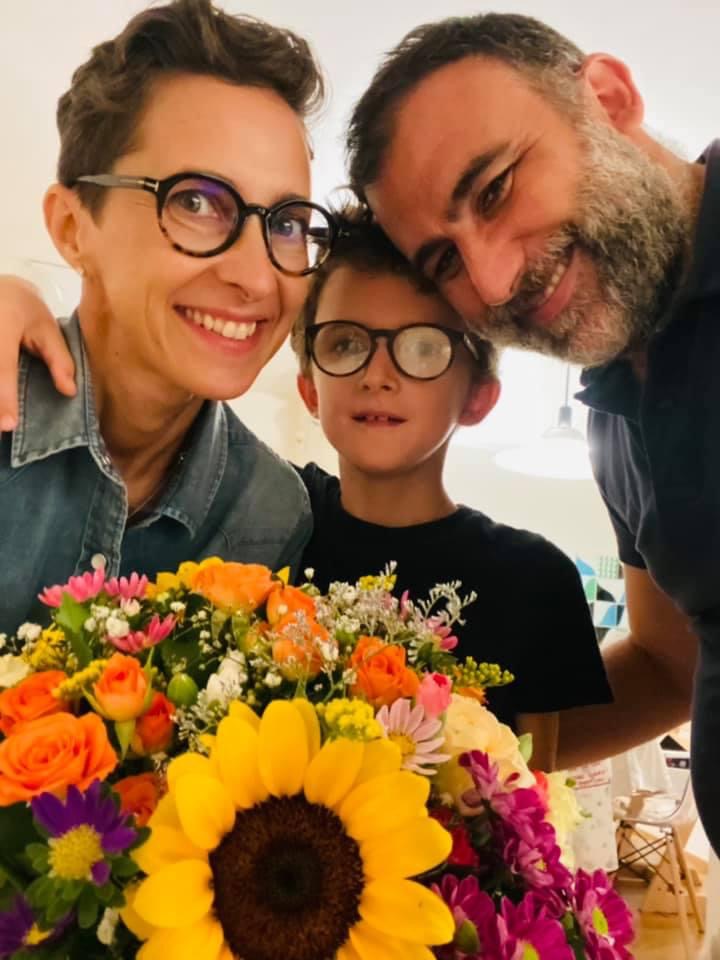The story of Verena
Me and my husband Giovanni live in Turin, Italy, with our nine years old son Pedro. After a long diagnostic journey at the age of eight he received a diagnosis of an ultra rare genetic disorder caused by a change in the Nuclear Factor One X (NFIX) gene located on the short arm of chromosome 19.
This gene contains the instructions to produce NFIX protein that plays an essential role in brain and muscle development as well as skeletogenesis.
Obviously when you have a child with a rare disease, best laid plans go to waste. He had to work out what was going to work best to our family.
The position we find ourselves in means We have to plan for a multitude of possible futures.
You change your perspective on all aspects: work, social, economic and emotional. We had to acquire new and complex skills in no time in order to become capable of facing changes – or rather, navigating uncertainties – maintaining the necessary balance to take care of ourselves and Pedro today and in the future.
I contacted the Malan Syndrome Foundation (New Jersey) as soon as we were diagnosed.
Since then I have collaborated with them and been able to get to know other families like mine
In 2021 I joined the Board of Directors of the Malan Syndrome Foundation and I bring my experience as an organizational architect to help transform the organization that was born locally (USA) towards an international reference role.
To do this we need to promote scientific research and establish partnerships with institutions to support families all over the world. At Italai we collaborate with Assi Gulliver who has welcomed and supports patients directly throughout the country – promoting the protection of civil rights and social integration of people with overgrowth syndromes (Sotos and Malan) both in developmental and adult age, and of our families.
And so when you become part of a community of other people like you, of other families like yours, that strong sense of belonging is born.
And you think: I finally figured out who I am.
This is the seed of identity for anyone with a rare disease in the family.
Being an Advocate is nothing more than working to increase this sense of belonging, knowledge of this identity, knowledge of the disease itself and ways of improving the quality of life of those affected by it.
Making something rare known further distances that “unique” being that excludes. And this can only be done by communicating correct and prejudice-free information.
